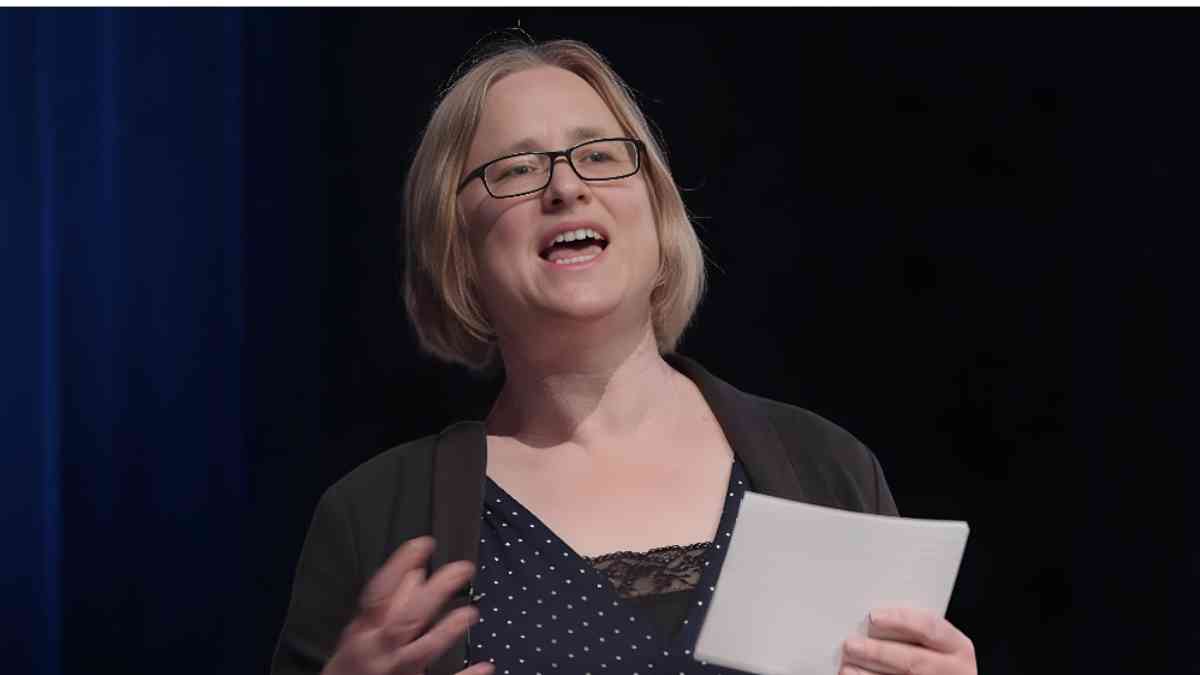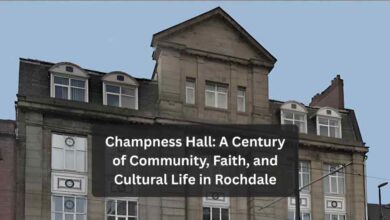Eleanor Jupp: Scholar of Social Policy, Urban Life, and Everyday Care

Eleanor Jupp is a prominent academic whose work has shaped contemporary understandings of social policy, urban geography, community engagement, and the politics of care. Her name has become closely associated with scholarship that connects the lived realities of disadvantaged communities with the broader structures of austerity, welfare reform, and urban change. As a Reader in Sociology and Social Policy at the University of Kent, she has consistently drawn attention to how ordinary people experience and respond to social and political shifts.
Academic Background
Eleanor Jupp began her academic journey with a foundation in the humanities, studying English and French at Oxford. Her curiosity about cultural practices and everyday life led her to pursue a Master’s degree in Anthropology and Cultural Studies at Goldsmiths, University of London. She later earned a PhD in Human Geography at the Open University, where her doctoral research focused on public participation and urban space in Stoke-on-Trent. Under the supervision of leading geographers, she developed an approach that combined theoretical depth with grounded, participatory methods.
Before joining the University of Kent, Jupp held positions at the Open University, the University of Reading, and Oxford Brookes University. Her diverse teaching and research experiences allowed her to refine her interdisciplinary focus, bridging sociology, geography, and social policy.
Work in Policy and the Voluntary Sector
Before embarking fully on her academic career, Eleanor Jupp worked as a policy adviser within the UK government, concentrating on neighbourhood regeneration and social inclusion. She also spent time in the voluntary sector, collaborating with organisations committed to reducing inequalities. These professional experiences gave her a practical perspective that continues to shape her academic work. Her writing reflects not only theoretical insights but also an understanding of how policies impact communities on the ground.
Research Themes
The scholarship of Eleanor Jupp centres on the intersections of urban life, social policy, and the politics of care. Several key themes emerge across her body of work.
Social Policy and Everyday Lives
A recurring theme in her writing is the way policies are experienced in the routines of everyday life. She examines how austerity measures, welfare reforms, and cuts to public services affect ordinary households. Jupp argues that policy is not just made in Westminster or Whitehall but is lived, contested, and negotiated in neighbourhoods and homes.
Urban Geography and Community Action
Her geographical training is evident in her studies of urban communities. She is especially interested in disadvantaged neighbourhoods where poverty, poor housing, and limited services combine to create significant challenges. Yet she also highlights the resilience and creativity of these communities, documenting forms of activism, volunteering, and collective care.
Emotions, Care, and Embodiment
One of Jupp’s distinctive contributions has been to place emotions and care at the centre of social policy analysis. Rather than treating welfare purely as a matter of economics or administration, she explores how it is infused with feelings—fear, pride, shame, compassion, or solidarity. This emphasis on emotions allows her to capture dimensions of policy often ignored in more conventional studies.
Crisis and Austerity
Her recent work has concentrated on the politics of crisis. From the financial crash of 2008 to the austerity policies that followed, and more recently the Covid-19 pandemic, she has explored how shocks reshape the relationship between citizens and the state. She pays particular attention to grassroots responses—such as mutual aid, gifting, and community sharing—that step in where official systems fail.
Major Research Projects
Eleanor Jupp has led and contributed to a number of significant research projects, many of them funded by research councils, charitable trusts, and local partnerships.
-
Gifting and Sharing in a Context of Crisis examined how communities exchange goods such as food, clothes, or household items in times of hardship. This project highlighted how informal acts of generosity provide dignity and survival strategies when welfare support is inadequate.
-
Stories of Luton Road captured the lived experiences of residents in relation to traffic, air quality, and health in a deprived part of Medway. Using participatory methods, it foregrounded voices that are often excluded from planning and policy discussions.
-
Children’s Rights and Climate Change in Medway connected young people with artists and activists to explore how climate change intersects with social justice. This project reflected Jupp’s commitment to amplifying youth voices in debates about the future.
-
Creative Place Partnership in Chatham involved arts-based research to address health and wellbeing inequalities, once again illustrating her belief in interdisciplinary, participatory approaches.
Publications
Eleanor Jupp is the author and editor of several influential books and numerous journal articles.
-
Care, Crisis and Activism: The Politics of Everyday Life (2022) explored how communities organise care under conditions of austerity and crisis. The book captured local activism that ranges from food banks to feminist campaigns, showing how these practices reconfigure politics at the grassroots level.
-
The New Politics of Home: Housing, Gender and Care in Times of Crisis (2019), co-authored with colleagues, analysed how the meaning of home has been reshaped by austerity, housing shortages, and changes in gender roles.
-
Emotional States: Sites and Spaces of Affective Governance (2017), co-edited with other scholars, examined how emotions are governed, managed, and mobilised in contemporary societies.
Her articles, published in journals such as Critical Policy Studies and Environment and Planning C, have furthered debates about emotion, affect, and community resilience. She has been recognised with awards for the originality and impact of her writing.
Teaching and Supervision
At the University of Kent, Eleanor Jupp teaches undergraduate and postgraduate modules that reflect her research interests. Courses include the sociology of emotions, politics of social policy, and qualitative research methods. She is known for encouraging students to think critically about how abstract concepts connect with lived realities.
She also supervises doctoral students working on topics such as digital geographies, environmental justice, youth experiences, and feminist activism. Many of her students adopt participatory and creative research methods, reflecting her influence as a mentor.
Professional Engagement
Beyond her research and teaching, Eleanor Jupp contributes actively to the wider academic and policy community. She sits on editorial boards, reviews papers for leading journals, and advises research projects. She has served as secretary for the Gender and Feminist Geography Research Group of the Royal Geographical Society, underlining her standing in the field.
Her work frequently intersects with public debates. She has spoken in media interviews and public talks about austerity, women’s citizenship, environmental justice, and the importance of care in social life. Her contributions bridge the gap between academia and everyday concerns, making her scholarship relevant to a wide audience.
Approach and Methodology
A hallmark of Jupp’s work is her commitment to participatory and qualitative methods. She often collaborates with local residents, voluntary organisations, and community groups, ensuring that research reflects the voices of those most affected by social and policy issues. She has made use of creative techniques such as storytelling, arts-based workshops, and participatory mapping. This approach challenges traditional boundaries between researcher and participant, creating knowledge that is not only analytical but also empowering.
Influence and Recognition
Eleanor Jupp’s contributions are recognised within and beyond academia. Her work has informed debates on austerity, housing, community resilience, and social care. Scholars cite her as a leading figure in the movement to foreground emotion and care within social policy studies. Policy makers and voluntary organisations have also drawn upon her insights when designing interventions aimed at disadvantaged communities.
Future Directions
Looking forward, Jupp is developing new work on socio-digital sharing infrastructures and their potential to address both welfare and climate justice challenges. This research promises to extend her long-standing interest in how communities organise care and resources, while also engaging with urgent questions about sustainability and environmental crisis.
Her focus on collaboration with artists, young people, and local activists suggests that her scholarship will continue to push boundaries and experiment with new ways of producing and communicating knowledge.
Conclusion
The name Eleanor Jupp has become synonymous with a rigorous yet humane approach to the study of social policy and urban life. By insisting that emotions, care, and everyday practices deserve as much attention as laws and budgets, she has redefined how we think about policy. Her career combines scholarly achievement with social commitment, bridging the worlds of theory, community activism, and public debate.
For students, researchers, and community members alike, Eleanor Jupp stands as an example of how academic work can illuminate, challenge, and improve the societies we live in. Her writing and projects remind us that policy is not an abstract system but something lived daily, shaping homes, streets, and futures.



